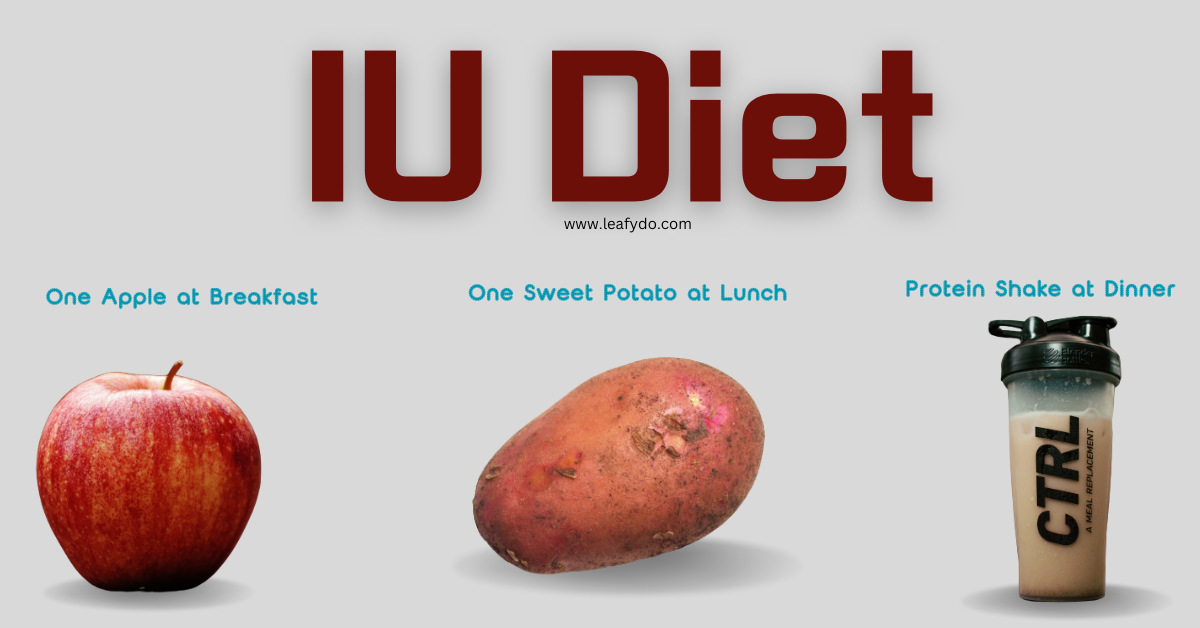Concepts from the unit
- Food trends
- Nutritional needs
- Psychological impacts
- Health impacts
Guiding Question: How might diet culture/trends influence eating patterns and impact people's physical and psychological health?
Diet culture is rooted in the societal glorification of thinness and encourages individuals, especially young women, to restrict their eating based on appearance instead of health or nutrition.
Diet culture encourages food trends such as keto, intermittent fasting that are based on promises of weight loss and not on individual health needs. An example of one of these extreme diets is the IU diet (K-pop inspired “trend”) which consisted of eating only an apple, a sweet potato, and a protein shake daily (~300 calories). It was inspired by South Korean pop star IU and, despite being dangerously restrictive and linked to eating disorders (admitted by IU herself), it was often glamorized or viewed as a sign of discipline. This diet, like many other restrictive diets, induced fatigue, mood swings, dizziness, and psychological stress among those who tried it (Tran, 2023).


Diet culture encourages body dissatisfaction, low self-esteem, and obsessive food tendencies. From a young age, people (especially girls) are exposed to various media and behaviors that convey the message that thinness is akin to beauty, worth, and success. This creates a pressure to conform to body standards and leads to eating disorders, food anxiety and often social isolation. Individuals label some foods as “bad” and experience guilt for eating them which reinforces subconscious toxic messaging in the brain (Rivera, 2022).
Physically, diet culture can be dangerous. Extremely restrictive dieting slows metabolism, interferes with hormones, causes fatigue, and contributes to deficiencies in nutrients. Additionally, dieting in repeated phases (yo-yo dieting) is common and increases the risk of cardiovascular disease, eating disorders, and osteoporosis. Many popular “diet” foods are also ultra-processed and lacking in nutrients but low in calories which causes many people on diets to be undernourished. Food companies prioritize profit and shelf-life over consumer health which means many cheap “healthy” processed foods are actually not and designed to be addictive. Artificial sweeteners and chemicals like aspartame or MSG in these foods may also trick the brain into wanting more, causing overeating and addiction-like behavior (Colquhoun et al., 2012).



Diet culture ultimately shapes unhealthy eating patterns by promoting unrealistic beauty standards, restrictive and unsustainable diets which all contribute to physical and psychological health problems. We can address diet culture by shifting our focus as a society from weight loss and appearance to nourishing the body, self-care and mental well-being. People can consume whole, minimally processed foods rich in nutrients instead of ultra-processed “food-like products”. Additionally, stress and sleep management are just as important as what we eat. To act against diet culture, we can support body diversity, avoid labelling foods as “good” or “bad” and set non-appearance related goals like strength, energy, and emotional balance (5 Things to Know About Diet Culture, 2024).
